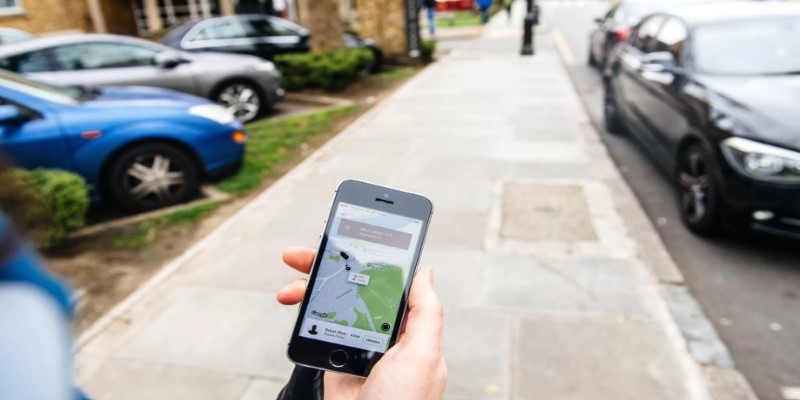Planning a trip to Indonesia can be overwhelming, but with the right approach, its incredibly rewarding. With over 17,000 islands, Indonesia offers diverse cultures, landscapes, and activities. Whether you want to relax on beaches, hike jungles, or experience local traditions, this guide covers essential steps for a well-planned, unforgettable journey.
The Ultimate Guide to Planning Your Indonesian Getaway
Planning a trip to Indonesia? This ultimate guide will help you navigate the archipelago's diverse landscapes, rich culture, and vibrant experiences. From choosing your destinations to understanding local customs, get ready for an unforgettable adventure!
Researching Your Destinations
Before you start packing your bags, it's crucial to narrow down where you want to go in Indonesia. The country is vast, and each region offers unique experiences. Bali is a popular starting point, known for its stunning beaches, rich culture, and vibrant life. If you're drawn to nature, consider heading to Sumatra for its rainforests and orangutans, or to Komodo Island to witness the famous Komodo dragons. Java is home to bustling cities like Jakarta and cultural treasures such as Yogyakarta, which are known for their historical significance and art scene.
Researching your destinations helps you understand the climate, local customs, and key attractions. Depending on the time of year you plan to travel, you might want to consider seasonal variations.
Setting a Budget
Budgeting for your trip is essential. Indonesia can cater to various budgets, from luxury resorts to budget hostels. Your expenses will largely depend on your travel style. While some travelers prefer upscale accommodations and fine dining, others enjoy the authenticity of local warungs (small restaurants) and guesthouses.
When setting your budget, consider not just accommodations but also activities, transportation, food, and souvenirs. Indonesia offers a range of activities, many of which are affordable. For instance, entry to national parks is usually inexpensive, and local guides can be hired for a reasonable fee.
Booking Your Flights
Once you've settled on your destinations and budget, it's time to book your flights. Major international airports in Indonesia include Ngurah Rai International Airport in Bali and Soekarno-Hatta International Airport in Jakarta. Depending on your starting point, you may find direct flights or need to connect through another hub.

Use flight comparison websites to find the best deals and keep an eye out for special offers. Booking your flights well in advance can save you money, especially during peak tourist seasons. If you plan on island hopping, look into domestic airlines, as they often provide affordable flights between the islands.
Choosing Accommodations
Finding the right place to stay is vital for a successful trip. Indonesia offers a diverse range of accommodations, from luxury resorts to budget-friendly hostels. In tourist hotspots like Bali, you can find everything from beachfront villas to charming homestays. In more remote areas, guesthouses and bungalows provide a more authentic experience.
When choosing accommodations, consider location, amenities, and reviews from previous guests. Websites like Booking.com and Airbnb can help you find the right spot.
Planning Your Itinerary
With your flights and accommodations sorted, it's time to plan your itinerary. Take into account the time you have available and your interests. Indonesia is rich in activitieswhether you're trekking in the mountains, exploring ancient temples, or diving in crystal-clear waters, there's no shortage of things to do.
For example, if you're visiting Bali, you might want to dedicate a few days to Ubud for its art scene and rice terraces, then spend time in Seminyak for the beaches and life. In Yogyakarta, consider visiting the iconic Borobudur and Prambanan temples, and maybe even taking a sunrise hike up Mount Merapi.
Understanding Local Culture and Customs
One of the most enriching aspects of traveling to Indonesia is experiencing its diverse culture. Indonesia is home to hundreds of ethnic groups, each with its own customs, languages, and traditions. Learning about local culture can enhance your experience and foster respect between you and the communities you visit.
Familiarize yourself with basic phrases in Bahasa Indonesia, the national language. Simple greetings can go a long way in building rapport with locals. Additionally, be mindful of cultural norms. For instance, dress modestly when visiting temples, and always ask before taking photographs of people or sacred sites.
Preparing for Health and Safety
Health and safety should be at the top of your mind while planning your trip. Check with your doctor regarding vaccinations and health precautions, especially for areas known for diseases like malaria. It's wise to pack a basic first-aid kit, including medications for common ailments such as headaches, stomach issues, and insect bites.
Stay informed about local safety guidelines and travel advisories. Petty crime can occur in tourist areas, so it's essential to keep your belongings secure. Use reputable transportation options and be cautious when exploring less populated areas.
Navigating Transportation
Getting around Indonesia can be a unique experience. While larger cities have ride-hailing apps and public transportation, more remote areas may require alternative methods. Domestic flights are common for long distances, while ferries connect many of the islands.

For local transport, consider renting a scooter if youre comfortable driving; its a popular way to explore Bali and other islands. Alternatively, you can hire a private driver for a day to make the most of your sightseeing. Public buses, known as angkots, offer a local experience, but be prepared for potential language barriers and longer travel times.
Enjoying the Local Cuisine
Indonesian cuisine is a delightful aspect of the travel experience. From the spicy sambal to the fragrant nasi goreng (fried rice), theres an array of flavors to explore. Street food is abundant and often delicious, but make sure to choose busy stalls where locals dine to ensure freshness.
Dont miss trying traditional dishes like rendang (slow-cooked beef), gado-gado (vegetable salad with peanut sauce), and satay (grilled skewered meat).
Conclusion
Planning a trip to Indonesia is exciting, with its stunning landscapes, rich culture, and friendly locals offering a unique adventure. Research, budget wisely, and embrace the local lifestyle for a memorable experience. Stay flexible, as the best moments often come from unexpected discoveries. Pack your bags and explore Indonesia's enchanting islands!






